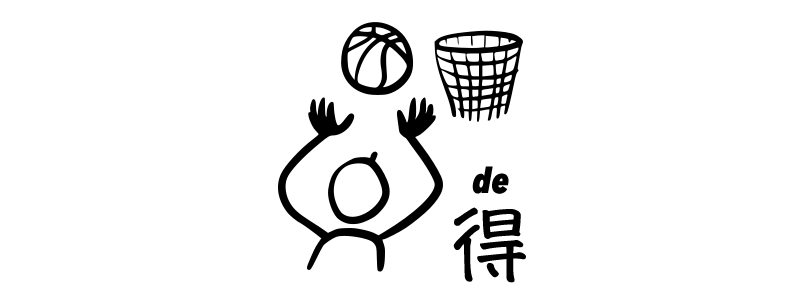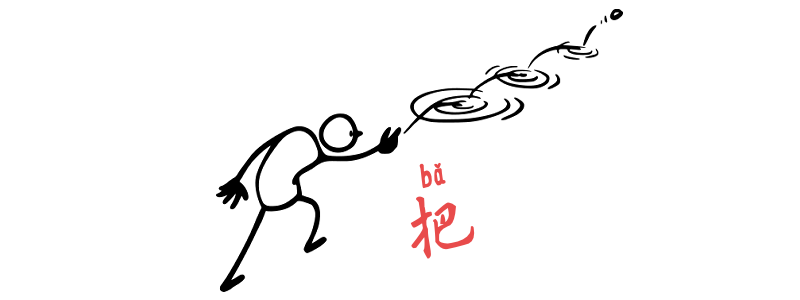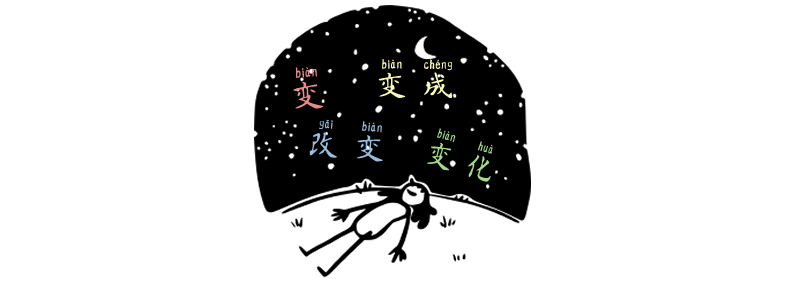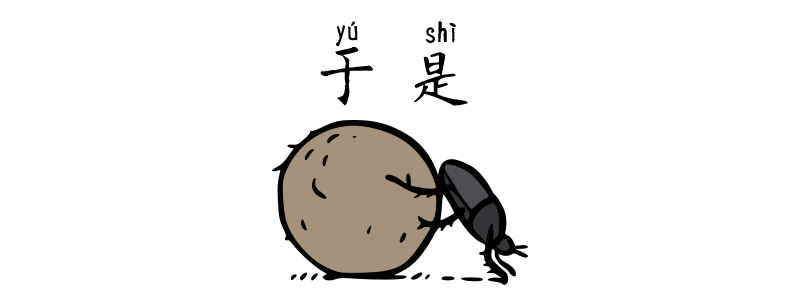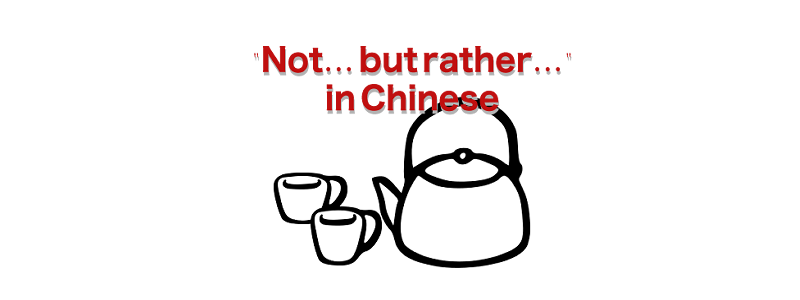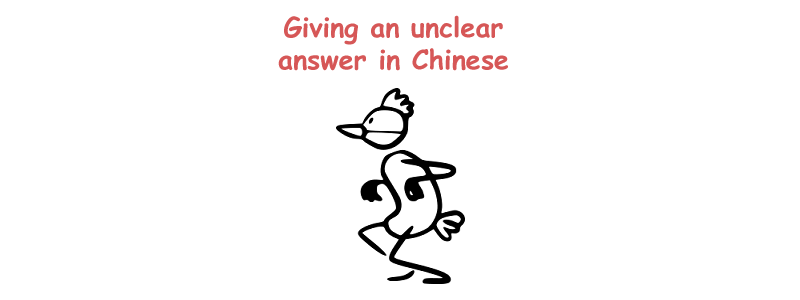Why Are Chinese Separable Verbs Important? One of the key reasons is that among the 1,000 commonly used verbs in Modern Chinese, a whopping 685 of them are separable verbs. You’ll frequently come across them, especially in basic words like 睡覺觉 (to sleep), 吃飯饭 (to eat), and 看書书 (to read), when learning Chinese. Knowing which…
Author: tiffany
Comparison Structure with 得 de
Grammar Point:This Chinese pattern allows you to describe how well or how adjective someone does something, and it can be used for comparisons between two subjects. Structure A 比 bǐ B + Verb + 得 de + Adjective 我wǒ比bǐ我wǒ弟弟dìdi走zǒu得de慢màn我wǒ比bǐ我wǒ弟弟dìdi走zǒu得de慢mànI walk slower than my younger brother. 這zhè種zhǒng狗gǒu比bǐ那nà種zhǒng狗gǒu吃chī得de多duō这zhè种zhǒng狗gǒu比bǐ那nà种zhǒng狗gǒu吃chī得de多duōThis type of dog eats more than that type. 你nǐ的de字zì比bǐ我wǒ妹妹mèimei寫xiě得de難看nánkàn你nǐ的de字zì比bǐ我wǒ妹妹mèimei写xiě得de难看nánkànYour…
Chinese grammar – 把 bǎ 1
Grammar Point:There are 3 functions of 把 bǎ in Chinese. Determination, command, and doing a movement on something that makes a change to it. And since 把 bǎ cannot be translated into English, many English speakers feel awkward using it. But it is a piece of grammar that Chinese native speakers use a lot in…
既 jì… 又 yòu/ 也 yě… Chinese grammar
Grammar Point:In Chinese grammar, 既 jì… 又 yòu… and 既 jì… 也 yě… are used to express two qualities, actions, or conditions that exist simultaneously. Both structures are similar and function like “both… and…” in English. Structure 既 jì + Adj + 又 yòu + Adj 這zhè件jiàn衣服yīfú既jì好看hǎokàn又yòu暖和nuǎnhuo这zhè件jiàn衣服yīfu既jì好看hǎokàn又yòu暖和nuǎnhuoThis outfit is not only stylish but also warm. 林lín老師lǎoshī的de中文zhōngwén課kè既jì嚴格yángé又yòu無趣wúqù林lín老师lǎoshī的de中文zhōngwén课kè既jì严格yángé又yòu无趣wúqùMr. Lin’s Chinese class…
Synonyms of “change” in Chinese
There are four different ways to talk about change in Chinese, each with its own nuance: 變变 biàn, 改變变 gǎibiàn, 變变化 biànhuà, and 變变成 biànchéng. Each of these terms has its own unique nuance, and understanding these subtleties can help you use them more accurately. Let’s have a small quiz. Do you know which one is correct? A – 最近zuìjìn的de生活shēnghuó有yǒu很hěn大dà的de變化biànhuà最近zuìjìn的de生活shēnghuó有yǒu很hěn大dà的de变化biànhuà…
“And then” in Chinese – 于是 yúshì
Grammar Point:The Chinese conjunction 於于是 yúshì is used to indicate a sequence of events, where the second event is a direct result or natural consequence of the first one. It is similar to “and then,” “therefore,” or “as a result” in English. Structure Event A + 於是/于是 yúshì + Event B It shows a cause-and-effect relationship without…
“Not… but rather…” in Chinese
Grammar Point:This Chinese structure is used to make a contrast, similar to saying “It’s not… but rather…” in English. The pattern is used when you want to correct or clarify something by presenting an alternative or more accurate statement. Structure 不是 + situation A + 而是 + situation B 我wǒ不是búshì不bù同意tóngyì而是érshì聽tīng不bú太tài懂dǒng我wǒ不是búshì不bù同意tóngyì而是érshì听tīng不bú太tài懂dǒngIt’s not that I disagree; I…
Yī Measure Word + bǐ + yī Measure Word
Grammar Point:This structure is often used to express that each item in a series or set is increasingly more or less of something. It highlights a trend or progression in comparison. Structure 一 MW + 比 + 一 MW + adj 我wǒ希望xīwàng我wǒ賺zhuàn的de錢qián一年yìnián比bǐ一年yìnián多duō我wǒ希望xīwàng我wǒ赚zhuàn的de钱qián一年yìnián比bǐ一年yìnián多duōI hope that the money I earn increases year by year. 最近zuìjìn的de天氣tiānqì真zhēn是shì一天yìtiān比bǐ一天yìtiān熱rè最近zuìjìn的de天气tiānqì真zhēn是shì一天yìtiān比bǐ一天yìtiān热rèThe weather lately is…
Giving an unclear answer in Chinese
Grammar Point:This Chinese grammatical pattern expresses a negation related to an action or choice, often implying a lack of specific intention or avoiding giving a clear answer. Note: When you use this pattern, it sometimes means you don’t want to share the information or you don’t think the listener needs to know. Depending on the…
Chinese Inferior Comparison
Grammar Point:The structure “A 沒有 méiyǒu B 這麼这么 zhème / 那麼那么 nàme Adj” is used to compare two things in Chinese, meaning “A is not as [adjective] as B.” It’s a simple way to say that one thing is less [adjective] than another. Structure A + 沒有 + B + (這麼/这么, 那麼/那么) + Adj. 這麼这么…

